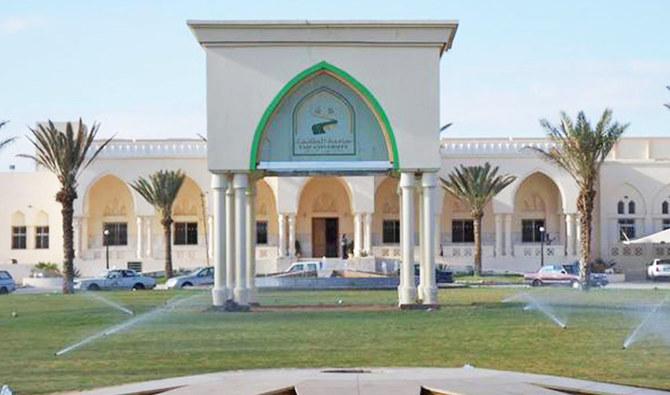In a bold move, placing Pakistan at the forefront of the global digital economy, the country has become the first in the world to roll out the Digital Foreign Direct Investment Initiative. Backed by the government of Pakistan and the Digital Cooperation Organization, this transformative launch is set to redefine how digital investment flows into emerging markets and who gets to shape the digital future.
With a vision built on innovation, inclusion, and international collaboration, the DFDI Initiative is unlocking new pathways to sustainable economic growth. It marks a turning point for Pakistan, not just as a participant, but as a regional trailblazer in digital transformation. As the 2026 DCO presidency looms, Pakistan is strategically positioning itself as a leader in the digital economy, poised to drive global conversations, partnerships, and innovations that will shape the future of digital investment.
Islamabad aims high: From capital city to ‘Davos of Digital FDI’
Islamabad is not just hosting the DFDI Forum 2025 — it is making a global statement. Poised to become the “Davos of Digital Foreign Direct Investment,” the city is opening its doors to tech visionaries, policymakers, and investors from 16 DCO member countries and beyond.
This is not business as usual. The forum is more than a conference — it is a launchpad for ideas, capital, and cross-border partnerships that will define the digital decade. Expect bold conversations, high-impact networking, and game-changing opportunities, all under one roof, in the heart of Pakistan’s capital.
A blueprint for digital growth: Pakistan’s DEP framework
At the core of this transformation is the Digital FDI-Enabling Policy, a comprehensive framework that lays the foundation for fast-tracked digital development across Pakistan and other emerging economies.
Designed for scale, agility, and investor confidence, the DEP focuses on four high-impact pillars:
● Building infrastructure: Investing in next-gen digital connectivity
● Accelerating adoption: Helping industries go digital, faster
● Fueling innovation: Backing cutting-edge tech solutions and startups
● Expanding digital exports: Scaling Pakistan’s booming IT and service sectors
These pillars work in unison to create a vibrant, investment-ready ecosystem where international capital meets local talent to spark exponential growth. This is not just a plan— it is Pakistan’s digital future, written with intention.
Why the world Is watching Pakistan’s digital ascent
The signals are clear: Pakistan’s digital economy is not just growing — it is accelerating.
With a 25.5 percent surge in ICT exports over just eight months, the country is fast emerging as one of the most dynamic digital investment frontiers in the Global South. From AI and fintech to cybersecurity, gaming, and cloud computing, Pakistan is building an innovation engine fueled by a young, tech-savvy workforce, favorable regulations, and a forward-leaning policy environment.
The DFDI Forum 2025 is your gateway to this transformation — your chance to be early, be bold, and be part of the next big frontier in global digital investment.
Not just talk — real deals, real connections
This is where ambition meets execution. DFDI Forum 2025 brings the entire digital ecosystem under one roof — startups, regulators, investors, development partners, and multinational tech leaders — in a space designed for meaningful engagement.
Through curated B2B meetups, high-level roundtables, and candid conversations with decision-makers, the forum is a hub of real-world deals and collaborative breakthroughs.
Whether you are scouting your next venture, exploring emerging markets, or building policy blueprints, this is the forum where ideas turn into action.
The global context: Why DFDI matters now
In an increasingly digital world, foreign direct investment must evolve. Traditional FDI models are being reshaped by data flows, digital infrastructure, and new modes of value creation. Yet many emerging markets remain underrepresented in global tech investment. That is why the DFDI Initiative and this forum matter.
By creating a shared framework for digital FDI, Pakistan and the DCO are providing a blueprint for other nations to follow — one that promotes trust, transparency, and technology transfer, while driving inclusive and resilient growth.
One forum. Endless possibilities. Every year.
By hosting this forum annually, Pakistan is signaling a long-term commitment to digital progress. It is not just about a moment, it is about momentum.
The DFDI Forum will be a living, breathing engine of change — a space where global actors return again and again to push boundaries, form alliances, and build the future of digital investment together.
Step into tomorrow with Pakistan leading the way
The DFDI Forum 2025 offers a front-row seat to a global digital shift. Be part of a movement that is transforming how, where, and why digital investments happen. From policy innovations to platform revolutions, witness firsthand the forces shaping tomorrow’s global economy.
Pakistan is open for innovation, inviting the world to co-create a future built on trust, tech, and transformation.
























